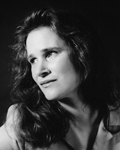1988, 2006
Martha Feldman
- Professor
- University of Chicago

Abstract
Abstract
The castrato and his singing--vastly popular in churches and opera houses of seventeenth- and eighteenth-century Europe--were nested in a repertory of myths that mediated ambiguities in early modern consciousness. His myths of origin, castration, and reproduction all resonated with contemporaneous myths of comic figures and angels, who arbitrate between human and animal, male and female, in the fantasies of their observers. Endowed with extraordinary traits, physical and phenomenal, castrati were sacrificial figures with redemptive powers for society. Yet problematically, since they thrived in commercial contexts where they were exchanged as commodities for money, they dramatize the fundamentally modern dilemma of (new) money without blood relations, which contributed to their musical fall from grace.

